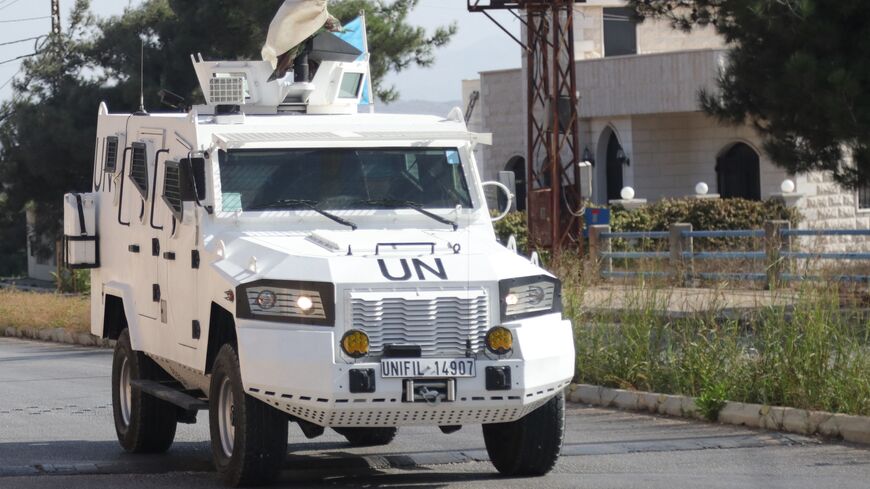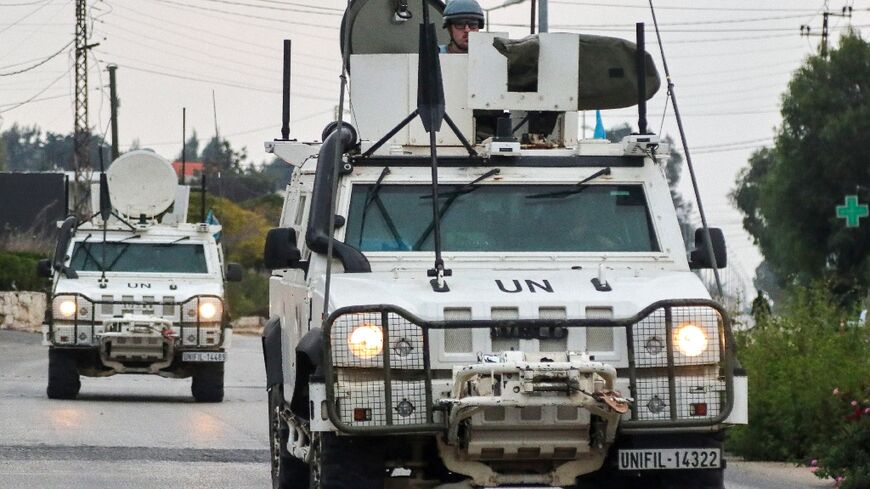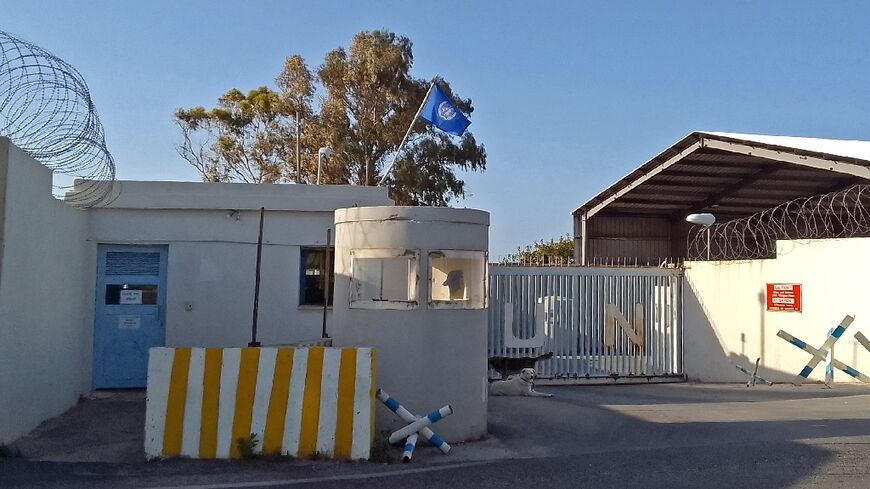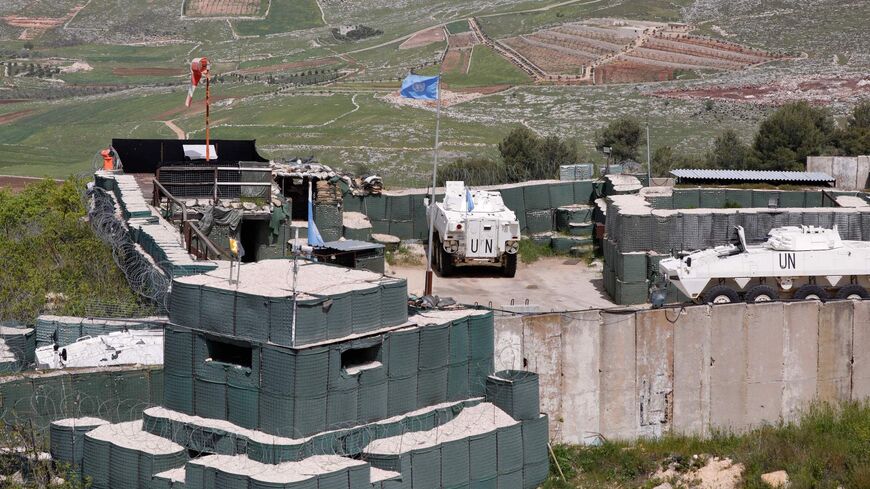France summons Israel envoy after new attack on UN peacekeepers in Lebanon
Four peacekeepers have been injured in the past 48 hours after UNIFIL positions were hit by Israeli fire in southern Lebanon, sparking deep concern from the UN regarding the safety of its mission in Lebanon.
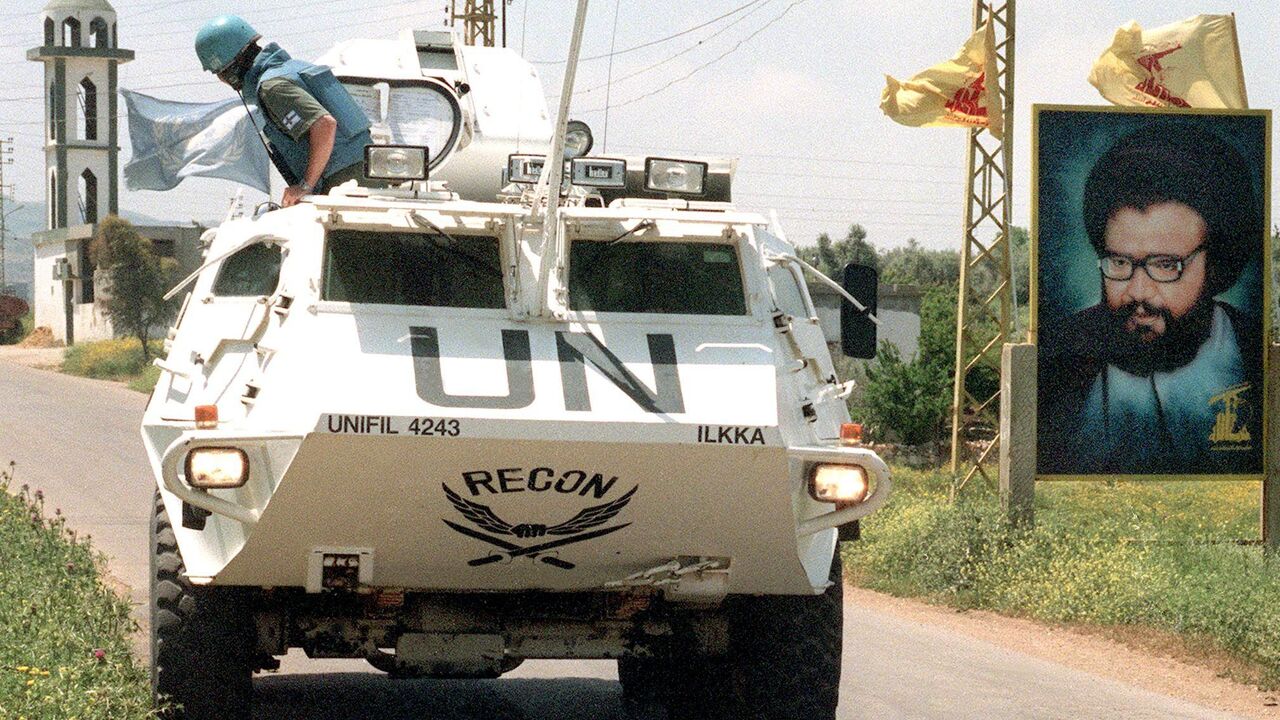
France has summoned the Israeli ambassador over new Israeli military attacks on UN peacekeeping positions, following a flurry of incidents between the military and the peacekeeping force over the past week.
An official diplomatic source told Al-Monitor that the Israeli ambassador, Joshua Zarka, was summoned for a meeting with the French Foreign Ministry over recent incidents that have injured members of the United Nations Interim Force in Lebanon.
After striking multiple posts belonging to UNIFIL on Thursday and Wednesday, injuring two peacekeepers on Thursday, the Israeli military has again struck the peacekeeping mission’s headquarters on Friday, injuring another two peacekeepers, according to the UN.
On Friday morning, UNIFIL, the longstanding peacekeeping mission in Lebanon, released a statement saying its Naqoura headquarters was “affected by explosions for the second time in the last 48 hours.”
“Two peacekeepers were injured after two explosions occurred close to an observation tower. One injured peacekeeper was taken to a hospital in Tyre, while the second is being treated in Naqoura.”
The statement also read that Israeli military bulldozers destroyed several walls in Labbouneh near the Blue Line, the 75-mile stretch of land on Lebanon’s southern border in which UNIFIL operates, after which Israeli military tanks “moved in the proximity of the UN position.”
The Israeli military's international spokesperson, Nadav Shoshani, stated on X that the peacekeepers were "inadvertently hurt" and that the military "expresses deep concern over incidents of this kind."
Shoshani wrote that in southern Lebanon, "Hezbollah uses civilian and UNIFIL facilities as shields."
Later on Friday, France, Italy and Spain released a joint statement to “condemn the recent targeting of UNIFIL.”
“We express our outrage after several peacekeepers were injured in Naqoura. These attacks constitute serious violations of the obligations of Israel under UNSCR 1701 and under humanitarian international law,” the statement said.
Meanwhile, in Israel, roughly 90 rockets were fired from Lebanon into northern Israel on Friday evening. The Israeli military said that some of the rockets had been intercepted, but others had impacted. The military did not provide further detail on whether those fallen rockets had caused damage.
On Thursday morning, the UN released a statement saying that an Israeli military tank fired “toward an observation tower at UNIFIL’s headquarters in Naqoura, directly hitting it and causing [two peacekeepers] to fall.” Both injured peacekeepers remain in the hospital, according to the UN.
This is not the first such incident between the Israeli military and UNIFIL peacekeepers in southern Lebanon in recent days. Earlier on Thursday, Israeli soldiers fired on a UNIFIL position in Labbouneh, hitting the "entrance to the bunker where peacekeepers were sheltering, and damaging vehicles and a communications system," according to the UN, which added that an Israeli military drone was seen approaching the bunker entrance.
On Wednesday, Israeli military soldiers “deliberately fired at and disabled the position’s perimeter-monitoring cameras” at UNIFIL's Labbouneh post, according to the same UN statement. Earlier on Wednesday, Israeli soldiers “deliberately” fired on a UN position in Ras Naqoura.
'Deliberate attack'
The UN said in its statement that “any deliberate attack on peacekeepers is a grave violation of humanitarian law and of [UN] Security Council Resolution 1701," referring to a resolution passed after the 2006 Israel-Lebanon war that implemented a cease-fire between Israel and Hezbollah and the withdrawal of Israeli forces from Lebanon, and required Hezbollah to retreat north of the Litani River.
Israel's military — which recently deployed a fourth ground division into southern Lebanon to assist in its ground operation that began on Sept. 30 — said Thursday in a post on X that Hezbollah operates near UNIFIL posts in Naqoura, and before the incident on Thursday, troops "instructed the UN forces in the area to remain in protected spaces, after which the [Israeli] forces opened fire in the area." The military added that it "maintains routine communication with UNIFIL" in southern Lebanon.
Israel's ground operations in the south would be "limited, localized and targeted ground raids" aimed at removing Hezbollah infrastructure along the border, the Israeli military said on Sept. 30, ahead of its ground invasion.
Yet last Tuesday, Israel told residents along the southwest coast of Lebanon and south of the Awali River to evacuate and stay away from the coastline, indicating a widening of Israel's front.
Italian Defense Minister Guido Crosetto on Thursday called the "shooting" at the Naqoura headquarters "intolerable." Crosetto said in a statement that he "protested" to his Israeli counterpart and the Israeli ambassador to Israel regarding the incident. With roughly 1,068 troops, Italy is the second-largest contributor of peacekeepers to UNIFIL, behind Indonesia. As of early September, UNIFIL’s force was made up of over 10,000 peacekeepers from 50 countries.
France, which has around 673 troops in the mission, released a statement from its Foreign Ministry on Thursday expressing "deep concern" over the incident. France "condemns any attack on the security of UNIFIL," the Foreign Ministry said. It added, "We await explanations from the Israeli authorities. The protection of peacekeepers is an obligation that applies to all parties to a conflict."
Operations stalled
Ireland's Prime Minister Simon Harris, whose country contributes 370 troops to UNIFIL, announced on X that all Irish UNIFIL troops are accounted for and said that "any firing in the vicinity of UNIFIL troops or facilities is reckless and must stop."
UN Under-Secretary-General for Peace Operations Jean-Pierre Lacroix told the UN Security Council on Thursday that the safety and security of peacekeepers in Lebanon are "increasingly in jeopardy."
Lacroix said that peacekeeping operations in Lebanon have all but come to a complete halt, "Peacekeepers have been confined to their bases with significant periods of time in shelter."
Canada's Foreign Ministry on Thursday called the Israeli military's reported firing at UNIFIL peacekeepers "alarming and unacceptable" in a post to the ministry's X account. The ministry called for the protection of peacekeepers and emphasized its "full support for UNIFIL."
Israel’s invasion of Lebanon has increased tensions between the Israeli military and UNIFIL forces, the latter of which has been in Lebanon for upward of 45 years.
First established in 1978 after Israel's invasion of Lebanon and strengthened by UNSC Resolution 1701 after the 2006 Israel-Lebanon war, UNIFIL has the mission of "ensuring Israel's withdrawal from Lebanon in 2000, helping to demilitarize Hezbollah, and supporting the Lebanese army and government to retain authority," according to the UN website.
Yet UNIFIL is limited in its ability to properly fulfill its mandate due to the corrupt and ineffectual state of the Lebanese government and Hezbollah's military presence in the country's south.
Nevertheless, despite repeated warnings from the Israeli military, UNIFIL forces have stayed in their posts across southern Lebanon throughout Israel's recent ground incursion. On Thursday, UNIFIL and Israeli officials told Axios that UNIFIL has in recent days rejected an Israeli request to evacuate posts along the border. UNIFIL has expressed concern over the proximity of the Israeli military to its postings, prompting fears among peacekeepers over potential clashes.
Intensified diplomatic efforts
Israel’s campaign in Lebanon has killed an estimated 1,200 people over the past two weeks and at least 2,083 since Oct. 8, 2023. According to Lebanon’s caretaker prime minister, Najib Mikati, the conflict has displaced nearly 1.2 million people, with an estimated quarter of a million of those fleeing to Syria.
Lebanon's parliament speaker, Nabih Berri, held a roughly 40-minute long phone call with US Secretary of State Antony Blinken on Friday, in which they discussed Israel’s ongoing war in Lebanon against Hezbollah.
Mikati said on Thursday morning that diplomatic communications have intensified ahead of a UN Security Council meeting yesterday to discuss Israel’s ground invasion of Lebanon. At the meeting, Mikati called for a “full and immediate” ceasefire between Israel and Hezbollah.
Mikati said on Thursday morning that diplomatic communications have intensified ahead of a UNSC meeting today at 3 p.m. EST to discuss Israel’s ground invasion of Lebanon.
“There are ongoing communications between the United States and France, which called for the Security Council meeting, aimed at reviving the announcement of a temporary cease-fire to allow the resumption of discussions on political solutions,” Mikati said, according to Lebanon’s state-run National News Agency.
The White House is hoping to capitalize on Hezbollah's losses to push for a presidential election in Lebanon, US media has reported, citing US government officials. US Secretary of State Antony Blinken has called various Arab leaders, including those of Qatar, Egypt and Saudi Arabia, seeking their support for an election push, according to The Wall Street Journal. Lebanon hasn't had a president in two years due to political paralysis.
Strikes in Beirut
The news of the attack came as Israel intensified strikes on Beirut on Thursday. Lebanon's health ministry said Thursday at least 11 people had been killed in Israeli strikes on Beirut -- the third such attack on the capital since Israel escalated its air campaign last month.
Israel has repeatedly pounded southern Beirut suburbs, the bastion of Lebanon's Hezbollah movement, for more than two weeks but strikes have rarely targeted the city center, AFP reported.
"The Israeli enemy's attacks on the capital Beirut this evening killed, according to a preliminary toll, 11 people and injured 48 others," the ministry said in a statement.
Lebanon's National News Agency (NNA) said the strikes hit the densely populated neighborhoods of Nweiri and Basta.
On Friday, Iran’s Islamic Revolutionary Guard Corps (IRGC) said that it had recovered the body of senior IRGC commander Abbas Nilforoushan, who was killed in an Israeli strike on Beirut on Sept. 27.
"With hard work and efforts around the clock, the body of martyr Abbas Nilforoushan has been discovered," a statement from the IRGC said. The IRGC also announced it was transferring Nilforoushan’s body back to Iran, with the details of his funeral coming “later.”
Nilforoushan’s killing, along with that of former Hezbollah Secretary-General Hassan Nasrallah, prompted Iran’s missile attack on Israel on Tuesday, Oct. 1.


